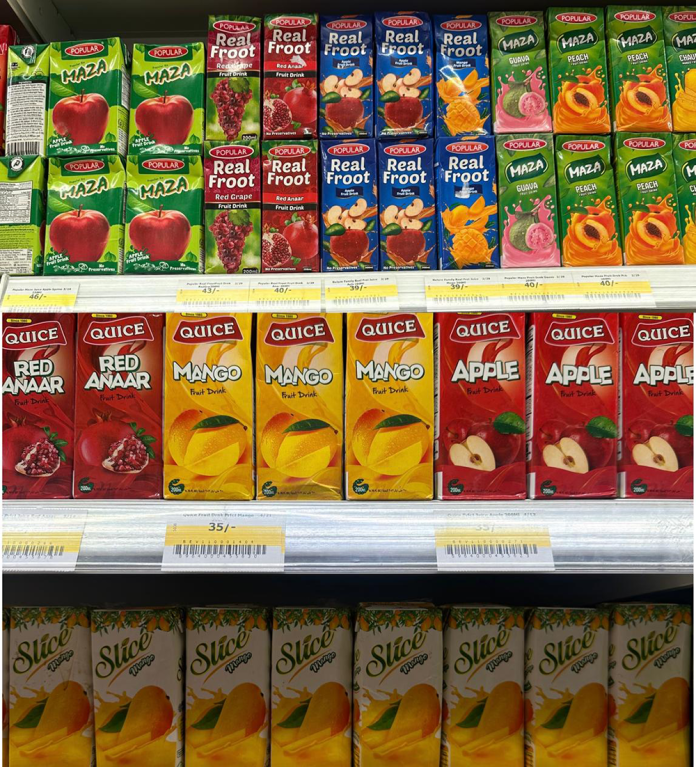At a time when the federal government and the finance minister emphasize documenting the economy and digitizing value chains to expand the tax base and boost the tax-to-GDP ratio, issues like smuggling and tax evasion persist. This has led to a shrinkage in the formal sector’s footprint, expansion of the black market, and increased circulation of substandard products, particularly in the food industry. These challenges are hindering the government’s ability to generate revenue.
Several sectors are notably affected, including the formal juice, dairy, and other food sectors, as well as tobacco and petroleum products and their derivatives. The formal juice industry has been similarly impacted by the imposition of a 20 percent federal excise duty (FED) last year. Sales volumes have dropped by 40 percent, and market share is being lost to illicit operators. The combined impact of an 18 percent GST and 20 percent FED, which totals 42 percent, incentivizes the informal sector to undercut prices and capture market share, especially as consumers seek cheaper alternatives during economic downturns.
Previously, the juice industry showed robust growth when a 5 percent FED was removed, with sales reaching Rs 60 billion and employment for about 10,000 people. The industry also played a crucial role in reducing farm-to-market losses in the fruit value chain. However, the reintroduction of a 20 percent FED has severely disrupted this progress, halving the amount of fruit processed into pulp compared to 2020.
Ultimately, while the government aims to increase revenue through taxes on the formal sector, the lack of enforcement is fostering informality. This not only results in revenue loss but also hampers the development of formal value chains, while the rise of smuggling and inferior products continues unabated. This situation is contributing to a market where less nutritious food products prevail, and illegal and informal value chains thrive, providing a safe haven for criminal activities.
It’s crucial for the finance minister to revise this strategy by reducing tax burdens and enhancing enforcement measures.
The fruit juice industry enhances the agricultural value chain by processing fruits into pulp and puree, significantly reducing the typical 30-40 percent post-harvest wastage. However, imposing a tax on juices could disrupt this value chain and slow the growth of the local pulp market.
In recent years, many companies have entered the juice industry, with several venturing into the pulp sector. For instance, a leading player in the mango pulp market estimated that mango wastage in Pakistan could amount to nearly $1 billion annually. Mangoes, being highly perishable, face substantial losses from harvest through storage and transportation to market. To minimize this waste, there is a critical need to develop the pulp market, which depends on domestic demand from the juice industry and potential for scaling up exports. Already, one company has begun exporting pulp to Europe.
The introduction of a Federal Excise Duty (FED) on fruit juices negatively affects demand throughout the value chain and risks stalling progress in the pulp market. For example, when a 5 percent FED was levied on fruit drinks in 2018-19, juice consumption in the formal sector plummeted from Rs53 billion to Rs41 billion in 2019-20. Higher indirect taxes also encourage growth in the informal juice market, which lacks quality control and does not contribute optimally to tax revenues.
When the FED was subsequently removed, the fruit juice market rebounded, reaching a new peak of Rs59 billion in 2021-22. Tax revenues from GST in that period increased and almost completely offset the loss from the previous FED. With the recent increase in FED to 10 percent, industry stakeholders anticipate a drop in sales below the Rs50 billion mark, which will likely reduce the government’s tax revenues.


